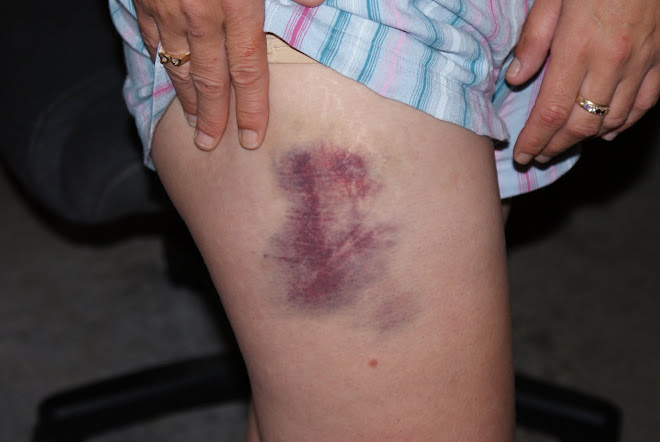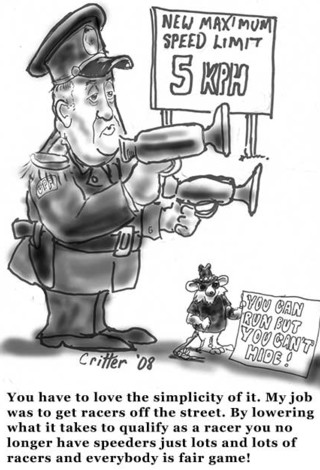Source:Caledon Enterprise
Thursday March 4 2010
By Mary Riley, Metroland Staff
The Crown attorney prosecuting the case against a retired OPP officer charged with dozens of historical sex offences against teenage boys described him as an opportunistic man who used specific "ruses" to gain access to them.
Mary Ellen Cullen delivered final submissions in the trial of Robert George (Bob) Lewis in Brampton on Feb. 25.
Mr. Lewis, 62, of Fenelon Falls, faces 25 sex-related charges involving 10 males that date back to the 1970s. He was charged in 2006 after Caledon OPP launched an investigation.
During his 30-year career with the OPP, he was posted to Downsview, Islington, Snelgrove (now Caledon), Minaki and Coboconk. He retired in 1997.
His trial began before Justice Joseph Fragomeni in Orangeville last May, and after court scheduling forced a delay, his defence began last November. A publication ban prevents publishing any details that could identify witnesses.
Last week, family and friends of some of the complainants and the Lewis family listened as Ms Cullen rebutted statements by defence lawyer Leo Kinahan earlier in the week.
In his final submissions, Mr. Kinahan said the evidence against his client was fraught with inconsistencies and was at times outright lies. He maintained there is "zero corroboration" for any of the allegations against Mr. Lewis and he constantly referred to multiple versions of alleged incidents of fondling, masturbation and oral or anal sex assaults.
Although most of the complainants do not know each other, a few do, and Mr. Kinahan suggested some could be trying to "help" others by testifying against Mr. Lewis.
Ms Cullen told the Court the law says judges must consider if there is an "improbability of coincidence" in the evidence. She insisted there has been no collusion and denied Mr. Kinahan's charge that the Crown hopes to convict based on the number of complainants in the case, saying, "This is not about a bunch of people who got together to 'get' Bob Lewis because he gave them speeding tickets."
Rather, Ms Cullen pointed out, these are "very brave men" who finally found the courage "to confront a police officer."
"I don't know how anyone in this case found the fortitude to come forward and [take on] a respected member of the community and an OPP officer," she said.
Normally soft spoken, Ms Cullen's voice gained strength as she accused Mr. Lewis of being evasive and vague on the stand. Citing several parts of his evidence, she told the Court he "fabricated" parts of it and deliberately avoided giving straightforward answers when he was cross-examined.
Ms Cullen described Mr. Lewis as "a great guy" whom everybody liked and respected as a police officer, family friend and neighbour. But, she painted a darker portrait as she described several of the alleged sexual assaults on the teenagers, saying Mr. Lewis used "ruses" to gain access to the boys.
Many of the alleged incidents happened while he was on duty, in places that included police cars, remote rural roads and the complainants' family homes. Ms Cullen cited one complainant's story that Mr. Lewis came to his home one night while the boy was home watching a hockey game with his parents. Court heard during the trial that Mr. Lewis pretended to "arrest" the boy as a joke, handcuffing him and putting him into his cruiser. He then drove the handcuffed teenager to a secluded area and touched his groin.
When he took the boy home, court heard, he stayed for awhile watching the hockey game.
But, Ms Cullen said Mr. Lewis testified he does not like hockey at all, and there was no reason for him to stay other than to "make sure [the boy] didn't say anything about what happened to him."
Ms Cullen said Mr. Lewis used his position as a police officer and a friend to many of the complainants' parents to gain trust, but also capitalized on the fact that none of the boys assaulted at his hands would accuse a police officer. She said the witnesses' testimony revealed details that were similar in the incidents, such as teaching police moves, wrestling, drying someone off after swimming and driving in police cars.
He used these "ruses" to touch the boys, she said, and if they didn't resist, the assaults would "become more intrusive." She said several witnesses testified Mr. Lewis had told them to "keep quiet" about the alleged incidents.
Ms Cullen addressed Mr. Kinahan's statements about witnesses who couldn't remember "major details" of the assaults. She insisted the witnesses were being "fair to the Court and to Mr. Lewis" by not embellishing or testifying to details they couldn't remember. When they could have easily boosted the number of incidents, she said, they instead focused on the ones they could clearly recall.
The Crown noted all of the complainants had "anchors," details of the incidents that fixed them in their minds, and there are similarities in their statements that revealed Mr. Lewis's "patterns of abuse he's used since the 1960s."
The Crown accused Mr. Lewis of "doing everything he could" to avoid admitting anything that could corroborate a witness's evidence, and observed his police notebooks are unreliable because he did not record when he stopped at private homes or took any of the boys for rides in a cruiser.
"But, he wouldn't put that in his notebook because he wasn't supposed to be doing those things on duty," she said.
When describing Mr. Lewis's alleged serial molestations of one complainant, Ms Cullen pointed out that years later, Mr. Lewis attended a funeral of one of the boy's family members. At the family home after the funeral (court heard at trial), the teenager took Mr. Lewis out behind a shed to show him a snowmobile he'd built from parts, and Mr. Lewis, the Crown said, again tried to touch the teenager.
"He even used a family funeral with lots of people nearby as an opportunity to take a young man to a private area and try [to touch him]."
Ms Cullen challenged Mr. Kinahan's claim that the Crown is "piling on" numerous complainants to gain a conviction in the case. Citing one witness who she said is angry and extremely reluctant to describe numerous alleged assaults at Mr. Lewis's hands, she said the man "struggled for years to try and come forward, but just couldn't."
"And, one day, he was driving in his car with his wife and heard on the radio that a retired police officer had been arrested and charged...and, he turned to his wife and said, 'It's Bob Lewis'," she said. "How would he know that?"
Ms Cullen said many of the men "didn't want to be the only one" to come forward and accuse a police officer, but many had said if one ever did, they would, too.
And, she pointed out that Mr. Lewis's height, build and presence as a police officer intimidated teenage boys who were fearful of telling anyone what happened to them. In small communities where Mr. Lewis was well-known and friends of many of the complainants' parents, she noted, the boys didn't feel they could speak out.
The Crown said that of course, there are inconsistencies in the witness's statements, especially to police, as, for many of them "it was the first time these words ever came out of their mouths; the first time they ever told anybody about what happened."
But, she urged the judge to consider that the inconsistencies must be considered not individually, but as a whole.
"You can look at that tree and see it's missing a branch," she said. "And, you can look at [another] tree and see it's missing a branch. But, if you have tree, tree, tree, tree - you're going to see the forest."
Ms Cullen will complete her submissions on Friday.
Thursday, March 4, 2010
Subscribe to:
Post Comments (Atom)
They had No Choice!

They wore these or I took away thier toys for 7 days!
"Damn Street Racer"pays with Brusies


















No comments:
Post a Comment